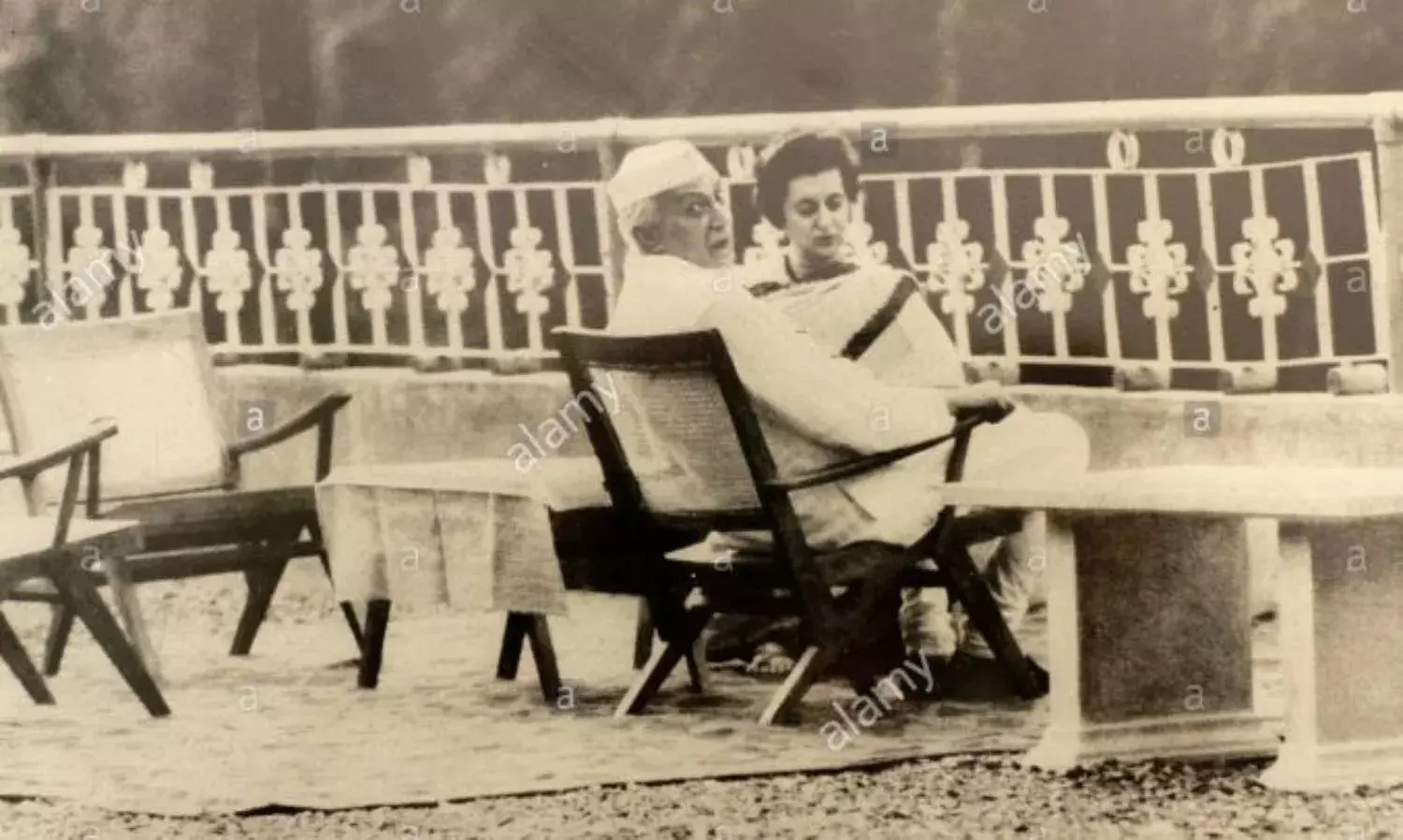Nehru’s Last Days in Dehra Dun
Nehru kept the Final Appointment

This piece by a nonagenarian journalist presents an eyewitness account of Nehru’s last evening in Dehra Dun.
Dehra Dun was Jawaharlal Nehru’s favourite getaway for rest and relaxation. In fact, the city had become a weakness with him. He would visit this valley town on any pretext and even no pretext. As Prime Minister, he felt greatly relaxed in the sylvan environs of its Circuit House, now converted into Raj Bhawan. He would stroll across its expansive wooded grounds or sit silently for hours under his favourite camphor tree with birds for his companions, listening. Occasionally he read or wrote and sometimes dictated depending on the mood of the hour. Here he felt at home and at peace.
It was sheer providence that Nehru’s last four days from May 23 to 26, 1964 too were spent in the city he loved so dearly.
On the penultimate day of his stay here, he took lunch with his old friend Sri Prakasa, former minister and governor, at Kotalgaon which is eight miles uphill on the Mussoorie road. Later in the afternoon, Indira and Nehru visited the Sahastradhara sulphur springs. As the sun was setting far away in the horizon, Nehru with Indira returned to the Circuit House, feeling rejuvenated and relaxed with the excursion.
That day Nehru talked many times of postponing his departure for Delhi by a day. So relaxed and comfortable did he feel here that he sincerely yearned to extend his stay. But that was not to be, since he had some important appointments in Delhi the following day. Eventually, the scheduled departure on 26th afternoon was adhered to, since it was felt it would give Nehru an overnight rest in Delhi, and enable him to attend his appointments the following day rested and refreshed.
At the Cantonment Polo Grounds that evening, a small and assorted group including this writer had gathered to bid Nehru a farewell. The Prime Minister stood at the helicopter’s open doorway, and looked back, almost blankly. He did not appear his usual cheerful self, though trying hard to keep pretences, and succeeding to some extent. He waved at us jauntily with his right hand, but it seemed a laboured effort. There was a strange sort of expression on his face.
What did he wish to convey to those of us who had assembled there to bid him an adieu? Was that to be the last and final good-bye? Did he have a premonition about his death?
But the hoped for overnight rest turned into restlessness. He awoke several times that night, and was given a sedative by his trusted attendant Nathu Ram. He awoke one final time before dawn. At about 6.30, Indira Gandhi and the physician Bedi were summoned. Nehru seemed somewhat disoriented when the two appeared by his bedside, and asked, “What is the matter?” And then he fell into a coma, and died at 1.44 PM on Wednesday, May 27. Though he missed his scheduled appointments in Delhi that afternoon, he did keep the Final Appointment with his Creator.
Raj Kanwar was in the motley group of officials and Congressmen gathered at the Cantonment Helipad to bid adieu to Jawaharlal Nehru on the afternoon of May 26, 1964



